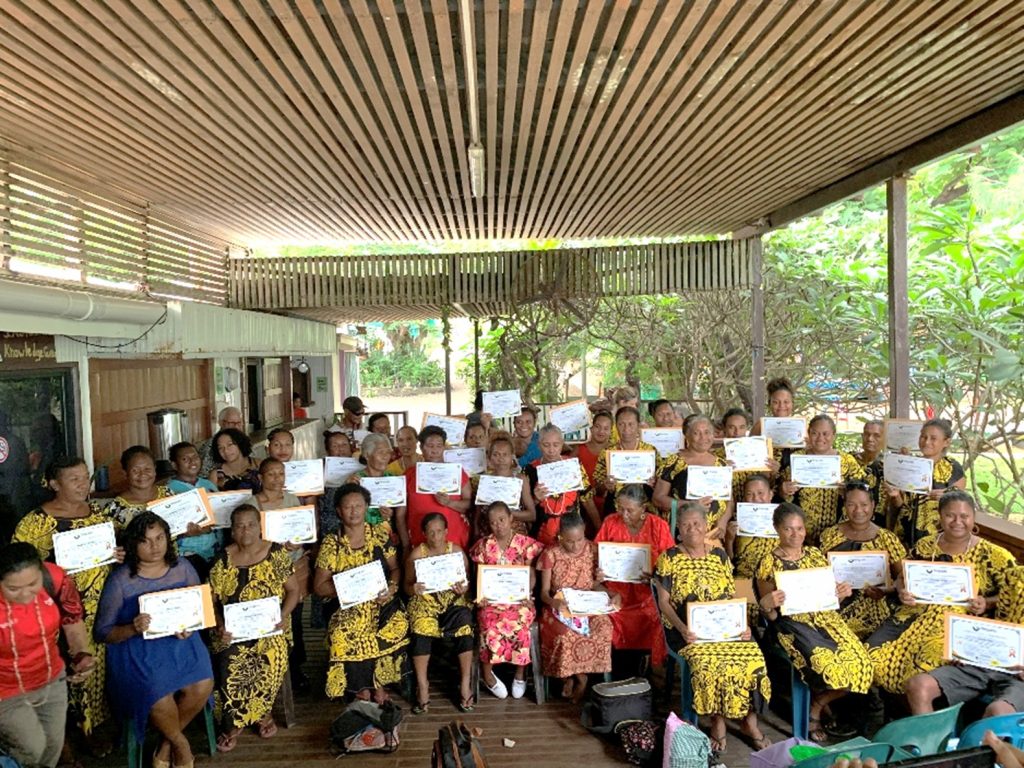In Papua New Guinea’s coastal villages near Port Moresby, 55 women and 2 men — including persons with disabilities — are gaining new skills that are both practical and life-changing. With support from the Commonwealth of Learning (COL) and funding from New Zealand’s Ministry of Foreign Affairs and Trade (MFAT), the Ginigoada Foundation trained participants to sew reusable sanitary and incontinence products, including their packaging bags from March to May 2025.
Over three week-long workshops, the group learnt to use both manual and electric sewing machines to produce pads, string bags, and health kits. For many, it was the first time speaking openly about menstruation or incontinence, subjects often treated as taboo. By making these products at home, families can now save money while ensuring women, girls, and the elderly have access to safe, hygienic supplies that enable them to attend school, go to church, and take part in community life.
The training also included awareness sessions on human rights, gender-based violence, and financial literacy. Participants explored their rights under the PNG Constitution, learnt how to identify and prevent violence, and practised essential business skills such as budgeting, costing, and record-keeping. This holistic approach built confidence and equipped participants to improve not only their livelihoods but also the well-being of their families and communities.
Graduates are now producing high-quality sanitary products and looking to expand their reach. Partnerships with initiatives such as Meri Freedom Bags are creating opportunities to sell pads to hospitals, NGOs and businesses, ensuring the programme’s sustainability.
By combining practical tailoring skills with knowledge of rights and financial management, this initiative is helping communities break taboos, strengthen resilience, and create income-generating opportunities.

